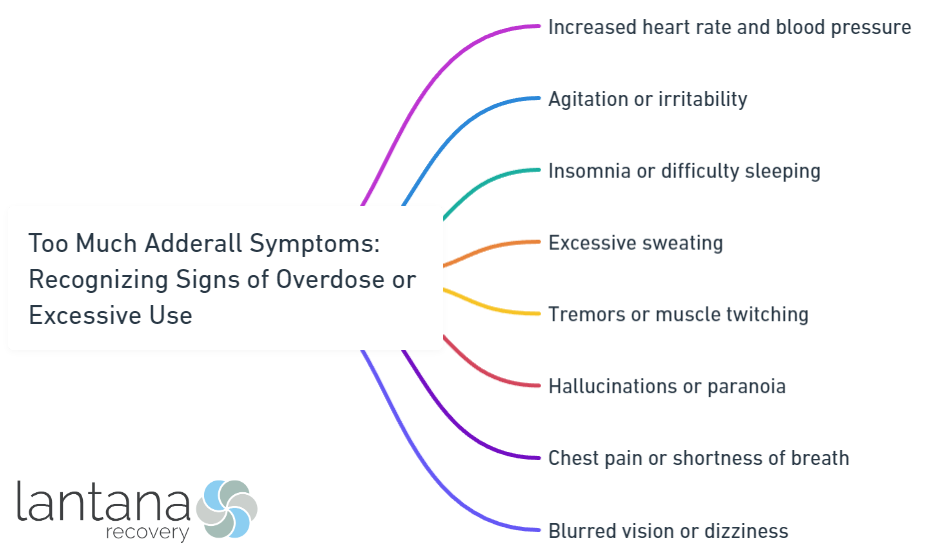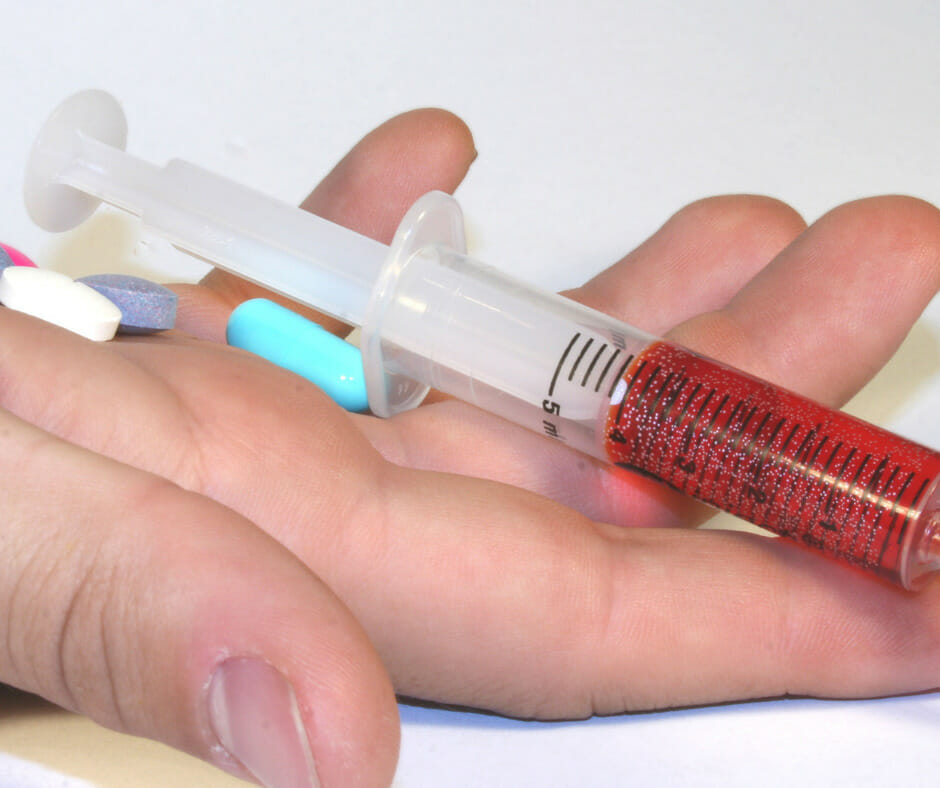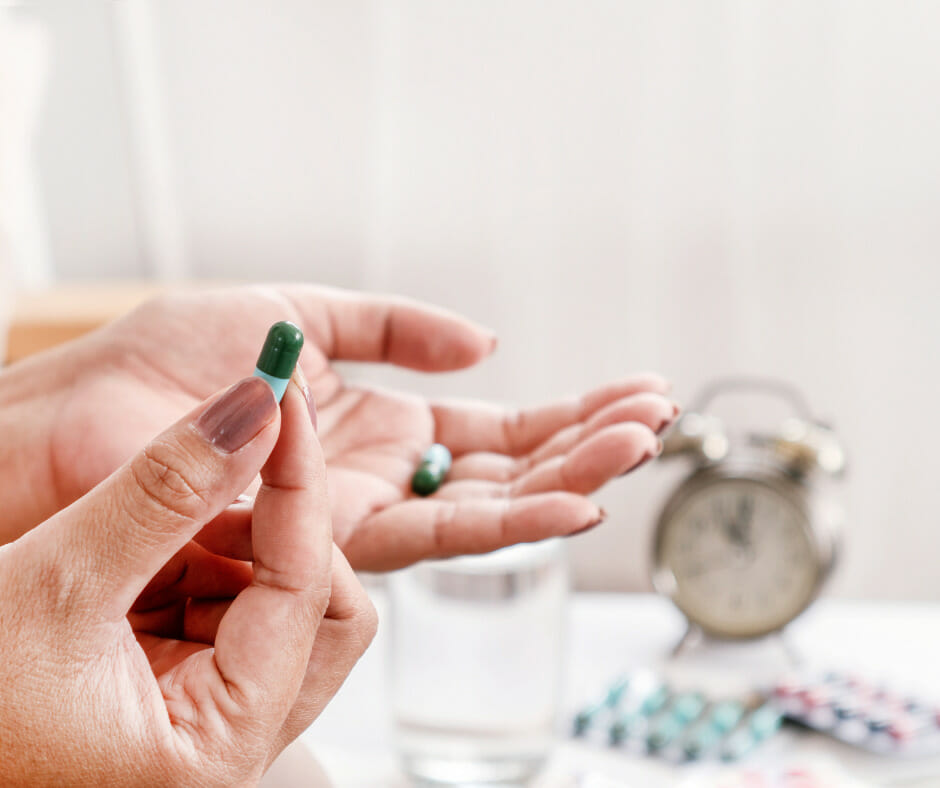Adderall, commonly prescribed for Attention Deficit Hyperactivity Disorder (ADHD), can be a helpful medication when used as directed. However, excessive use or overdose of Adderall can have serious consequences for one’s physical and mental health. It is important to recognize the signs of Adderall overdose or excessive use in order to take appropriate action and provide assistance to those in need.
This article aims to provide an overview of Adderall, its common uses, and the potential signs of overdose or excessive use. It will explore the long-term effects of excessive Adderall use and provide guidance on how to help someone experiencing an Adderall overdose or excessive use. Lastly, it will touch upon prevention strategies and safer approaches for the use of Adderall, emphasizing proper dosage, education, and alternative approaches for ADHD management. By understanding these crucial aspects, individuals can make informed decisions and promote the safe use of Adderall.

What is Adderall?
Adderall is a medication used to treat attention deficit hyperactivity disorder (ADHD) and narcolepsy. It contains amphetamine and dextroamphetamine, which affect the brain and nerves to reduce hyperactivity and improve impulse control.
The active ingredients in Adderall increase the levels of certain neurotransmitters in the brain, such as dopamine and norepinephrine. This improves focus, attention, and impulse control in individuals with ADHD. Adderall is available in immediate-release and extended-release forms, with different dosages and durations of action.
It is important to note that Adderall should only be taken under the supervision of a healthcare professional. It is not intended for recreational use or to enhance performance in individuals without ADHD. Adderall can have side effects such as increased heart rate, increased blood pressure, loss of appetite, and difficulty sleeping.
If prescribed Adderall, follow the healthcare professional’s instructions and dosage. Misuse or excessive use can lead to serious health complications and dependence. Consult a healthcare professional for any concerns or questions about Adderall use.
Common Uses of Adderall
Adderall is mainly prescribed to treat Attention Deficit Hyperactivity Disorder (ADHD) and narcolepsy. It can also be used off-label for other conditions as determined by a healthcare professional.
1. ADHD: Adderall improves focus, attention span, and control of impulsivity in individuals with ADHD, recommends a neuroscientist from Yale School of Medicine in her study titled Stimulants: Therapeutic Actions in ADHD. It increases the levels of dopamine and norepinephrine in the brain.
2. Narcolepsy: Adderall manages symptoms of narcolepsy, a sleep disorder characterized by excessive daytime sleepiness and sudden attacks of sleep. It promotes wakefulness and reduces daytime sleepiness.
3. Off-label uses: Sometimes Adderall is used off-label for conditions like treatment-resistant depression, cognitive enhancement, and weight loss. However, these uses are not FDA-approved and should be considered under medical guidance.
It is important to follow the prescribed dosage and instructions provided by your healthcare provider when using Adderall. Misuse or taking it without a proper evaluation and prescription can lead to serious health risks. Always consult with a healthcare professional to determine the appropriate and safe use of Adderall for your specific needs.
Adderall was FDA-approved in 1996 for ADHD treatment. It has become one of the most commonly prescribed medications for ADHD, providing relief and improved functioning. Adderall’s uses have expanded over the years, with more research and understanding of its benefits and risks. Responsible use and medical supervision are crucial for optimal outcomes and to minimize potential adverse effects.

Recognizing Signs of Overdose or Excessive Use
Are you worried about the potential dangers of Adderall overdose or excessive use? In this section, we will dive into the critical task of recognizing the signs that indicate you or someone else may be experiencing an Adderall overdose or using it to an excessive extent. From physical symptoms to psychological and behavioral changes, we’ll explore the various aspects of Adderall overdose so that you can stay informed and take appropriate action if necessary. Stay tuned for important insights and information to keep yourself and your loved ones safe.
Physical Symptoms of Adderall Overdose
Physical Symptoms of Adderall Overdose
The symptoms of Adderall overdose can be alarming and may require immediate medical attention. It is important to be aware of these symptoms for appropriate action.
- Elevated heart rate: Adderall can cause a rapid and irregular heartbeat. This can be accompanied by palpitations and an increased heart rate.
- High blood pressure: Adderall overdose can result in a significant increase in blood pressure. This can manifest as headaches, dizziness, and blurred vision.
- Chest pain: Some individuals may experience chest pain and discomfort due to an Adderall overdose. This should never be ignored and should be reported immediately to a healthcare professional.
- Shortness of breath: Breathing difficulties, such as breathlessness or labored breathing, can occur during an Adderall overdose. This can indicate cardiovascular distress and requires immediate attention.
- Intense sweating: Excessive sweating, even in cool environments, can be a sign of an Adderall overdose. This symptom is associated with increased body temperature and can contribute to dehydration.
- Seizures: Adderall overdose can rarely lead to seizures. These may present as involuntary body movements, loss of consciousness, and convulsions.
If you or someone you know experiences any of these physical symptoms after taking Adderall, seek medical assistance immediately. Prompt treatment can help prevent further complications and ensure the individual’s safety and well-being.
Psychological Symptoms of Adderall Overdose
Psychological Symptoms of Adderall Overdose can have a significant impact on an individual’s mental well-being. It is crucial to recognize these symptoms in order to seek immediate medical attention. Here are some
1. Agitation: Excessive use of Adderall can result in irritability, restlessness, and overall agitation. This may cause difficulty in focusing on tasks and being easily provoked.
2. Anxiety and Panic Attacks: Adderall overdose can lead to heightened anxiety, intense fear or worry, and panic attacks characterized by sudden and overwhelming discomfort.
3. Paranoia: Overdosing on Adderall can induce paranoid thoughts and a distorted perception of reality. Individuals may become suspicious of others’ intentions or believe they are being watched or followed.
4. Delusions and Hallucinations: Severe Adderall overdose can trigger delusions and hallucinations. Individuals may perceive things that are not present, causing a disconnection from reality.
5. Mood Swings: Excessive use of Adderall can cause drastic mood changes, with individuals experiencing rapid shifts between extreme happiness, deep sadness, or irritability.
It is essential to remember that Adderall should only be taken under medical supervision and in prescribed doses. If you or someone you know experiences these Psychological Symptoms of Adderall Overdose, immediate medical assistance is crucial. Treatment for Adderall overdose may include supportive care, medication adjustments, or psychological interventions.
Always prioritize your health and consult a healthcare professional for any concerns or questions regarding Adderall usage.
Behavioral Symptoms of Adderall Overdose
The behavioral symptoms of Adderall overdose vary, but it’s important to recognize them for prompt intervention. Here are some behavioral symptoms of Adderall overdose to look for:
– Agitation: Excessive restlessness or irritability.
– Hyperactivity: Unusual or excessive physical activity.
– Impulsivity: Acting without thinking or engaging in risky behaviors.
– Hostility: Increased aggression or angry outbursts.
– Poor judgment: Making irrational decisions.
– Changes in social behavior: Withdrawing from relationships or showing disinterest in social interactions.
– Inability to concentrate: Difficulty focusing or staying attentive.
– Sleep disturbances: Insomnia or difficulty falling or staying asleep.
– Excessive talkativeness: Rapid or pressured speech.
If you suspect someone may be experiencing behavioral symptoms of Adderall overdose, seek medical assistance immediately. Professionals can provide evaluation and treatment for the person’s well-being. Offering emotional support and understanding can also be beneficial during this challenging time. Remember, early recognition and intervention are crucial to prevent further complications.

Long-term Effects of Excessive Adderall Use
Discover the lasting impact that excessive Adderall use can have on your mind and body. Delve into the long-term effects of this prescription medication, ranging from physical health complications to mental health challenges and social behavioral changes. Uncover the potential risks and consequences associated with overuse, as we shed light on the hidden dangers of relying too heavily on Adderall. It’s time to gain a deeper understanding of the true toll that excessive Adderall use can take on your overall well-being.
Physical Health Complications
Excessive use of Adderall can result in a range of physical health complications. Some of the complications that can arise from such use include cardiovascular issues, gastrointestinal problems, weight loss and malnutrition, and sleep disturbances.
1. Cardiovascular issues: Prolonged usage of Adderall can increase heart rate and blood pressure, which can put strain on the cardiovascular system. This strain has the potential to cause palpitations, irregular heartbeat, or even a heart attack, reports a meta-analysis of 10 randomly controlled trails identifying the cardiovascular side-effects of CNS stimulants for treating ADHD.
2. Gastrointestinal problems: Adderall disrupts the normal functioning of the digestive system, leading to issues like loss of appetite, stomach pain, nausea, and constipation. In severe cases, it may even result in gastrointestinal bleeding or intestinal blockage.
3. Weight loss and malnutrition: Adderall suppresses the appetite, which can result in significant weight loss. Inadequate food intake due to this suppression can lead to nutritional deficiencies and compromise overall health.
4. Sleep disturbances: Excessive use of Adderall can disrupt the regular sleep patterns, leading to insomnia or other sleep disorders. The lack of quality sleep can further contribute to physical health problems and negatively impact overall functioning.
It is important to note that these physical health complications are more likely to occur with misuse or excessive use of Adderall. To ensure safe usage, it is recommended to follow proper dosage guidelines, regularly consult a healthcare professional, and prioritize overall well-being.
Mental Health Complications
Mental health complications are a serious concern when it comes to excessive Adderall use. It is important to acknowledge the potential risks and effects on mental well-being. Here are several mental health complications that can arise due to excessive Adderall use:
- Anxiety: Excessive Adderall use can increase anxiety levels. Users may experience heightened worry, restlessness, and unease.
- Depression: The misuse of Adderall can contribute to the development or worsening of depressive symptoms. Users may experience feelings of sadness, loss of interest in activities, and changes in appetite or sleep patterns.
- Irritability: Excessive Adderall use can lead to irritability and mood swings. Users may find themselves easily agitated or struggling to control their emotions.
- Psychosis: Although rare, excessive Adderall use can lead to psychosis. Users may experience hallucinations, delusions, or disorganized thinking.
- Paranoia: Excessive Adderall use can also induce feelings of paranoia. Users may have irrational thoughts or beliefs, feeling like they are constantly being observed or judged by others.
If you or someone you know is experiencing any of these mental health complications, it is crucial to seek help and support. Consulting a healthcare professional is highly recommended for an accurate diagnosis and appropriate treatment.
Social and Behavioral Complications
Social and behavioral complications can arise from excessive use of Adderall. These complications can impact an individual’s relationships, daily functioning, and overall well-being. It is important to understand and recognize these complications to address them effectively.
1. Interpersonal problems: Excessive Adderall use can strain relationships with family, friends, and colleagues. Social complications like irritability, mood swings, and difficulty maintaining connections are common.
2. Isolation and withdrawal: People may isolate themselves from social activities and prioritize Adderall use over social interactions. This can lead to feelings of loneliness and detachment from their social support network.
3. Impulsivity and risky behaviors: Adderall misuse can contribute to impulsive decision-making and engaging in risky behaviors, such as dangerous activities, excessive gambling, or even criminal behavior to obtain the drug.
4. Changes in personality and behavior: Excessive Adderall use can alter an individual’s personality and behavior, causing agitation, aggression, or erratic behavior that makes maintaining healthy relationships challenging.
5. Neglect of responsibilities: Adderall abuse can result in neglecting important work or school obligations, leading to poor academic or professional performance and potential consequences like job loss or academic suspension.
Providing support and seeking professional help is crucial for individuals experiencing social and behavioral complications due to excessive Adderall use. With intervention, understanding, and treatment, individuals can regain control of their lives and rebuild healthy relationships.
Sarah’s excessive use of Adderall strained her relationships with family and friends. She became increasingly isolated, missing out on important social events. Her impulsive behaviors, such as excessive spending and risky activities, created further complications. Recognizing the impact of her behavior, Sarah reached out for help and began receiving therapy and support. Over time, she rebuilt her relationships, resumed her responsibilities, and regained stability and well-being. Sarah’s story illustrates that with the right support, individuals can overcome social and behavioral complications associated with excessive Adderall use.

How to Help Someone Experiencing Adderall Overdose or Excessive Use
Witnessing someone going through an Adderall overdose or excessive use can be a distressing experience. In this section, we will explore how you can provide effective assistance to those in need. From recognizing the signs of Adderall overdose to seeking immediate medical help and offering essential emotional support, we’ll equip you with the knowledge and tools necessary to make a difference. Together, let’s ensure that we extend the helping hand others desperately require in these critical situations.
Recognizing the Signs
Recognizing the signs of Adderall overdose or excessive use is crucial for identifying health risks and seeking interventions. It is important to pay attention to physical symptoms such as an increased heart rate, high blood pressure, rapid breathing, tremors, and dilated pupils.
Additionally, psychological symptoms like heightened anxiety, agitation, restlessness, irritability, paranoia, and hallucinations should be taken into consideration.
Behavioral symptoms to watch for are hyperactivity, impulsivity, aggression, recklessness, or engaging in risky behaviors. By observing these signs, you can effectively identify potential Adderall misuse.
If you notice any of these symptoms in yourself or someone else, it is essential to seek immediate medical assistance. Medical professionals can provide the necessary help and support.
Remember, prevention is always better than intervention. It is important to follow proper dosage, supervision, and education about the risks and alternative approaches for managing ADHD to prevent Adderall misuse and its complications.
By recognizing signs early on, individuals can promote their well-being and ensure the safe use of Adderall.
Seeking Medical Assistance
Seeking medical assistance is of utmost importance when dealing with an Adderall overdose or excessive use. It is vital to act promptly if you observe physical symptoms such as rapid heartbeat, chest pain, high blood pressure, seizures, or psychological symptoms like hallucinations, paranoia, and aggression. In case of such an emergency, contact emergency services by dialing 911 or your local emergency number, and make sure to provide clear information about the person’s condition and symptoms. While waiting for medical help, it is crucial to follow the instructions given by healthcare professionals over the phone. Stay by the person’s side, offering reassurance and comfort, and keep the medical professionals updated about any changes in their condition. Always remember, it is better to be safe and let the professionals handle the situation appropriately.
Offering Emotional Support
When someone experiences an Adderall overdose or excessive use, offering emotional support is crucial. It can be overwhelming for both the individual and their loved ones. Here are some ways to naturally incorporate the keywords “offering emotional support” in such situations:
1. Listen actively: Create a safe and non-judgmental space for the person to express their feelings and concerns. Be attentive and empathetic, offering emotional support by allowing them to voice their emotions without interruption.
2. Validate their experiences: Let the person know that their feelings are acknowledged and respected. Avoid downplaying or dismissing their emotions. Instead, offering emotional support by validating their experiences, say things like, “I understand that this must be difficult for you.”
3. Offer reassurance: Encourage the person by highlighting their strengths and resilience. Let them know that offering emotional support helps in their recovery journey and that they have your support throughout the process.
4. Encourage professional help: Suggest that they seek professional assistance such as contacting a healthcare provider or addiction counselor. Assure them that seeking help is a sign of strength and that offering emotional support by professionals can guide them through the recovery journey.
I remember a close friend who struggled with excessive Adderall use. I offered emotional support by actively listening to her struggles and assuring her that she was not alone. I validated her experiences and encouraged her to seek professional help. Together, we researched addiction counselors and found a support group for her. Through my continuous offering emotional support and her dedication to recovery, she was able to overcome her addiction and regain control of her life. It was challenging, but offering emotional support was crucial to her successful recovery.
Remember, offering emotional support is crucial in helping someone navigate the difficulties of an Adderall overdose or excessive use. By being compassionate and understanding, you can naturally incorporate the keywords “offering emotional support” and contribute to their healing process.
Prevention and Safer Use of Adderall
When it comes to Adderall, prevention and safer use should be our top priority. In this section, we’ll dive into the steps we can take to ensure a responsible and well-informed approach. From understanding proper dosage and supervision to educating ourselves and loved ones, we’ll explore ways to promote safer Adderall use. Plus, we’ll even explore alternative approaches for managing ADHD. So, let’s journey together towards a more informed and health-conscious path with Adderall.
Proper Dosage and Supervision
When it comes to Adderall, follow these steps:
1. Consult a healthcare professional: Before starting Adderall, consult a healthcare professional to assess your condition and determine the appropriate dosage.
2. Start with the lowest effective dose: The initial dose of Adderall should be the lowest effective dose to minimize side effects.
3. Regularly monitor and adjust dosage: Dosage adjustments may be necessary based on individual response and needs. Regularly check in with your healthcare professional to ensure the dosage is still appropriate.
4. Follow the prescribed schedule: Take Adderall as prescribed by your healthcare professional. Do not change the dosage without their guidance.
5. Maintain open communication: Keep your healthcare professional informed about any changes in symptoms or side effects. They can help determine if the dosage needs to be adjusted.
6. Supervise usage: If Adderall is prescribed for someone else, such as a child, ensure proper supervision to ensure they take the medication as directed.
Proper dosage and supervision are essential for the safe and effective use of Adderall.
Fact: According to a study published in the Journal of Clinical Psychiatry, proper dosage and supervision of Adderall can help individuals with ADHD manage symptoms and improve daily functioning.
Educating Yourself and Loved Ones
Educating yourself and loved ones is crucial when it comes to Adderall. Building knowledge and awareness about this medication will help you make informed decisions and prioritize safety and well-being.
Start by conducting thorough research on Adderall. Understand its uses, recommended dosage, and potential side effects. This information will equip you with the necessary understanding to navigate through this medication.
In addition to research, seek guidance from healthcare professionals who specialize in ADHD or mental health. They can provide invaluable information and insights that will aid in making well-informed choices.
Maintaining open and honest communication with loved ones is essential. Encourage them to share any concerns or experiences related to Adderall. By fostering an environment of dialogue, you can address any potential issues and ensure a supportive network.
Monitoring Adderall usage is crucial. Since the medication comes in a variety of dosages ranging from 5mg to Adderall 30 mg, it is important to adhere strictly to prescribed dosages and schedules while regularly checking for any effects or potential side effects. This vigilance will help you remain aware of the medication’s impact and take necessary actions if needed.
Stay updated with the latest research, guidelines, and recommendations regarding Adderall. By remaining informed, you can adapt your approach and make decisions that prioritize safety and well-being.
Consider exploring alternative approaches like therapy or lifestyle changes to manage ADHD. These methods, in combination with Adderall, can enhance overall well-being while minimizing potential risks.
By incorporating these steps into your routine, you will cultivate a well-informed approach to Adderall usage for both yourself and your loved ones. This proactive approach ensures safety and well-being for all involved.
Alternative Approaches for ADHD
Cognitive-Behavioral Therapy (CBT): Normally, implemented within an outpatient treatment facility, this therapeutic approach focuses on identifying and modifying negative thoughts and behaviors. It is an effective method for managing ADHD symptoms and enhancing executive functioning skills.
Exercise: Regular physical activity benefits individuals with ADHD by improving attention, impulse control, and overall cognitive function.
Dietary Changes: Some studies suggest that certain dietary modifications reduce ADHD symptoms. These include avoiding food additives and increasing intake of omega-3 fatty acids found in fish and nuts, as well as maintaining a balanced diet with plenty of fruits, vegetables, and whole grains.
Mindfulness and Meditation: Practicing mindfulness and meditation techniques improves self-awareness, focus, and emotional regulation in individuals with ADHD. Mindfulness-Based Cognitive Therapy (MBCT) shows promising results in reducing ADHD symptoms.
Supplements: Omega-3 fatty acids, iron, zinc, and magnesium supplements may help manage ADHD symptoms. Consult with a healthcare professional before starting any supplement regimen.
Alternative Therapies: Acupuncture, chiropractic care, and biofeedback provide relief for some individuals with ADHD. While scientific evidence may be limited, these approaches are worth considering for those seeking non-medication options.
These alternative approaches for ADHD can complement or serve as alternatives to traditional medication-based treatments. Consult with a healthcare professional to determine the best approach for individual needs and ensure safety and effectiveness.
Frequently Asked Questions
What are the signs of Adderall overdose or excessive use?
Signs of Adderall overdose or excessive use can include hyperactivity, hallucinations, rapid heart rate, muscle pains, loss of consciousness, excitability, rambling conversation, and unusual behavior.
What are the potential risks of Adderall abuse?
Adderall abuse can have serious and potentially deadly side effects, including an irregular heartbeat, heart attack, physical changes in the brain leading to altered behaviors, mental disorders like depression, and increased risk of overdose.
What should I do if I suspect an Adderall overdose?
If you suspect an Adderall overdose, it is important to call 911 or seek emergency help immediately. Provide accurate information about the person’s age, health status, medication history, and any other substances taken. It is crucial to disclose recreational use or the use of “study drugs” to medical professionals to avoid harmful interactions.
Are there specific medications or treatments for Adderall overdose?
There is no specific medication or treatment for an Adderall overdose, but supportive care and treatment of symptoms and complications may be provided. Immediate medical attention is necessary for proper evaluation and management of the overdose.
What are the recommended treatment options for Adderall addiction?
Treatment options for Adderall addiction may include inpatient treatment for treating Adderall comedown symptoms, cognitive behavioral therapy, 12-step meetings, online addiction therapy, and treatment centers. Prompt treatment is important to prevent the escalation of addiction and potential abuse of other drugs.
Where can I find resources and support for Adderall addiction?
For resources and support related to Adderall addiction, you can reach out to community service providers, rehab information, prevention hotlines such as the National Suicide Prevention Lifeline at 988, or the Crisis Text Line at 741741. These services can connect you with trained crisis counselors who can provide guidance and assistance in finding appropriate help.









